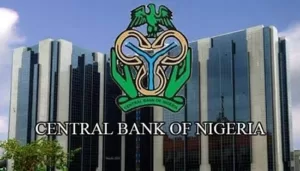Did you know that the Nigerian Central Bank (CBN) was established and had become fully operational before Nigeria gained independence?
Indeed, not many Nigerians know this. They just know that the Central Bank of Nigeria was established to perform regulatory functions in the banking sector.
But what these functions truly are, not many of them know.

In the early 1950s, when the African colonies of the British Empire began clamouring for independence.
The then adviser to the governor of the Bank of England, John Barraclough de Loynes, advised the colonial master to establish the Central Bank of Nigeria.
Have You Read: How CBN’s Emefiele Impersonated SGF To ‘Scam’ $6.2M From The CBN
At that time, monetary matters in the colonies were the responsibilities of the Colonial Office.
That advise of J.B. Loynes led to the establishment of the Central Bank of Nigeria (CBN) through the CBN Act of 1958.
It commenced full-fledged operations on July 1, 1959, serving as the Apex monetary authority that regulates and supervises banks and other financial institutions in Nigeria.
The Banks and Other Financial Institutions Act (BOFIA) and the Central Bank of Nigeria (Establishment) Act 2007 (CBN Act) give the Apex bank these powers.
Regulatory Functions Of The Central Bank of Nigeria (CBN)
Maintaining external reserves: It maintains the country’s external reserves to protect the international value of the legal tender currency.
Promoting monetary stability: The bankers bank promotes monetary stability and a sound financial system in Nigeria.
Issuing legal tender currency: It has the exclusive right to issue and control the issuance of legal tender currency in Nigeria.
You May Also Like: Banks To Follow New CBN Guidelines For Cryptocurrency Transactions
Acting as a banker of last resort: The CBN acts as a lender of last resort to banks.
Providing economic and financial advice: Also, the CBN provides economic and financial advice to the Federal Government.






